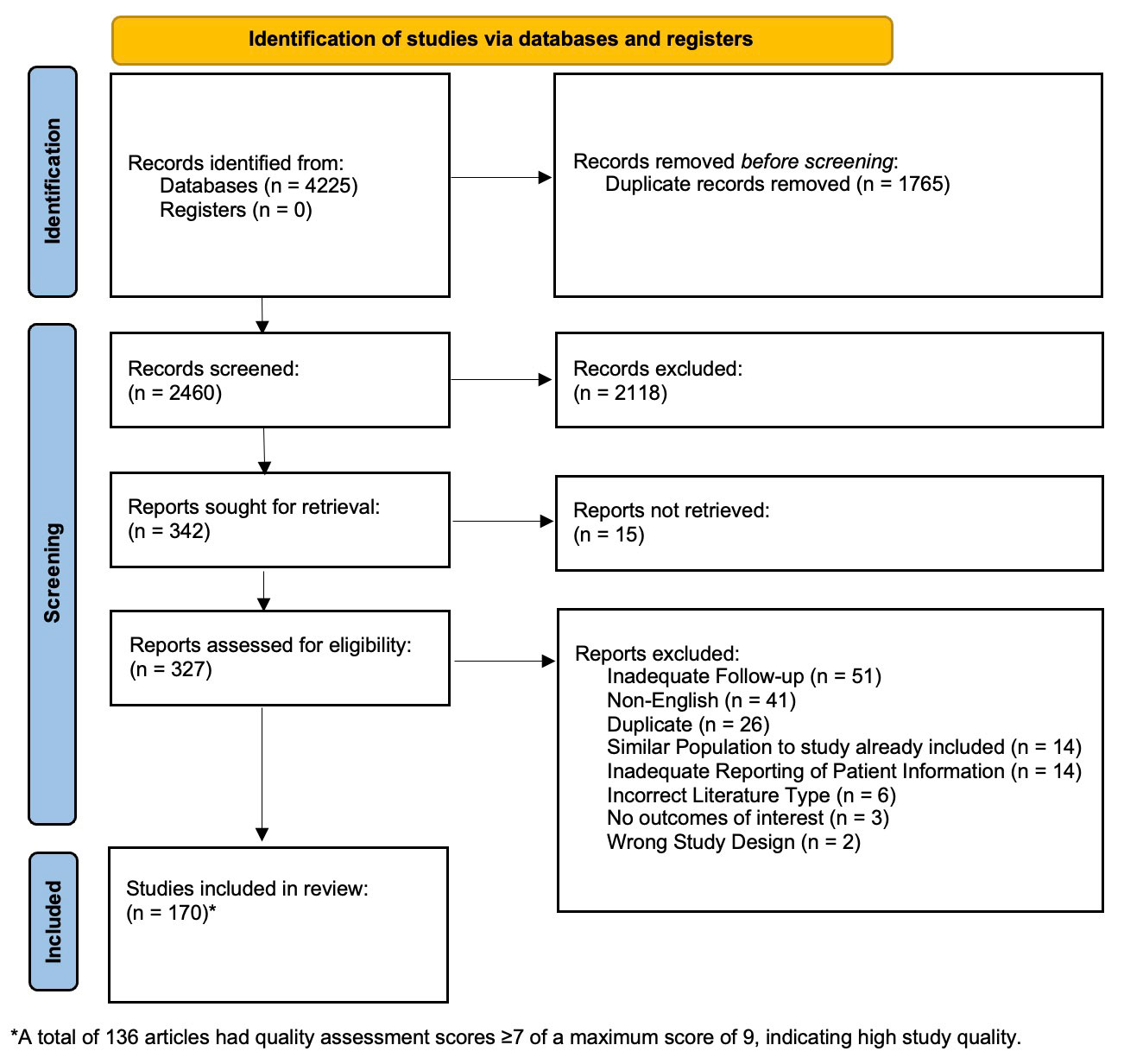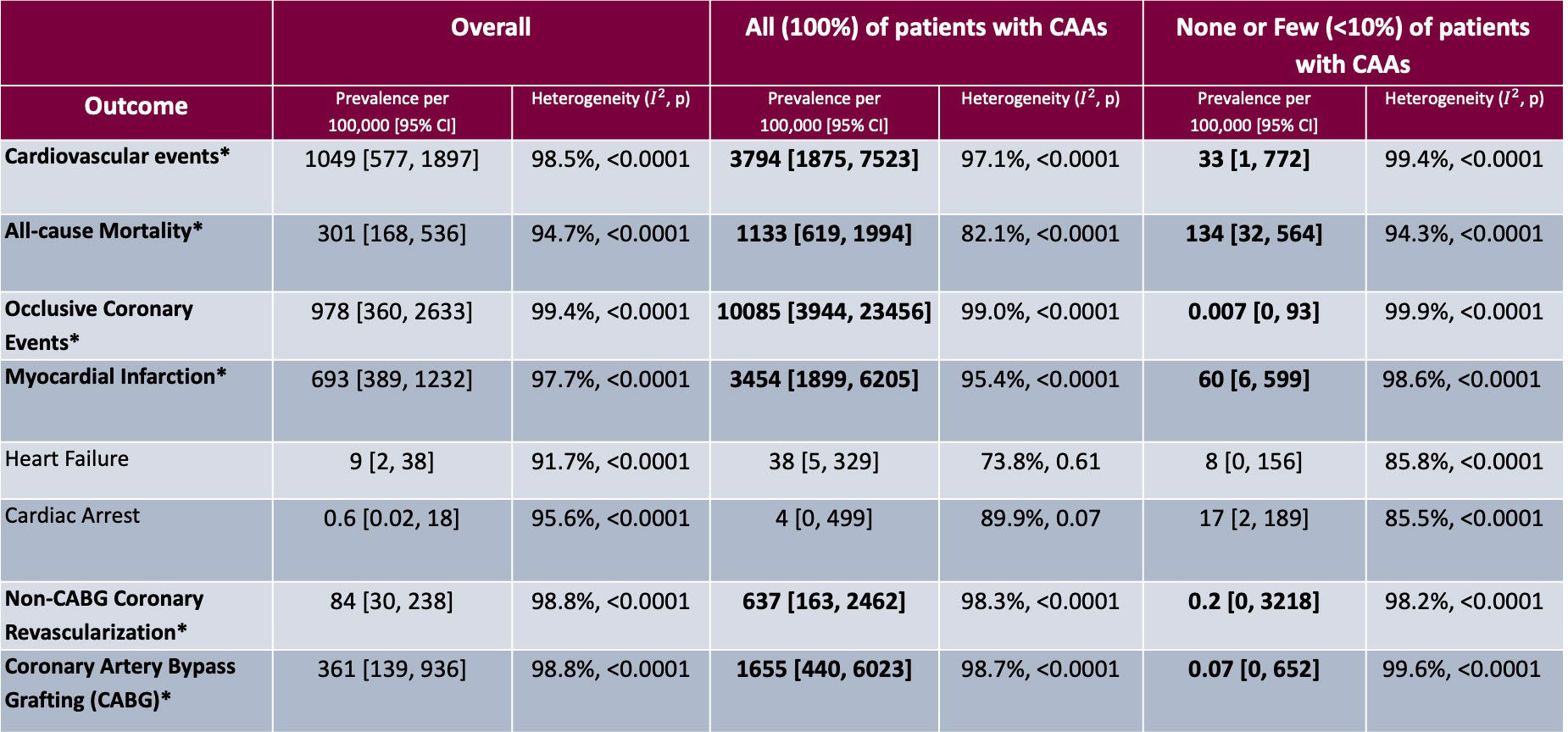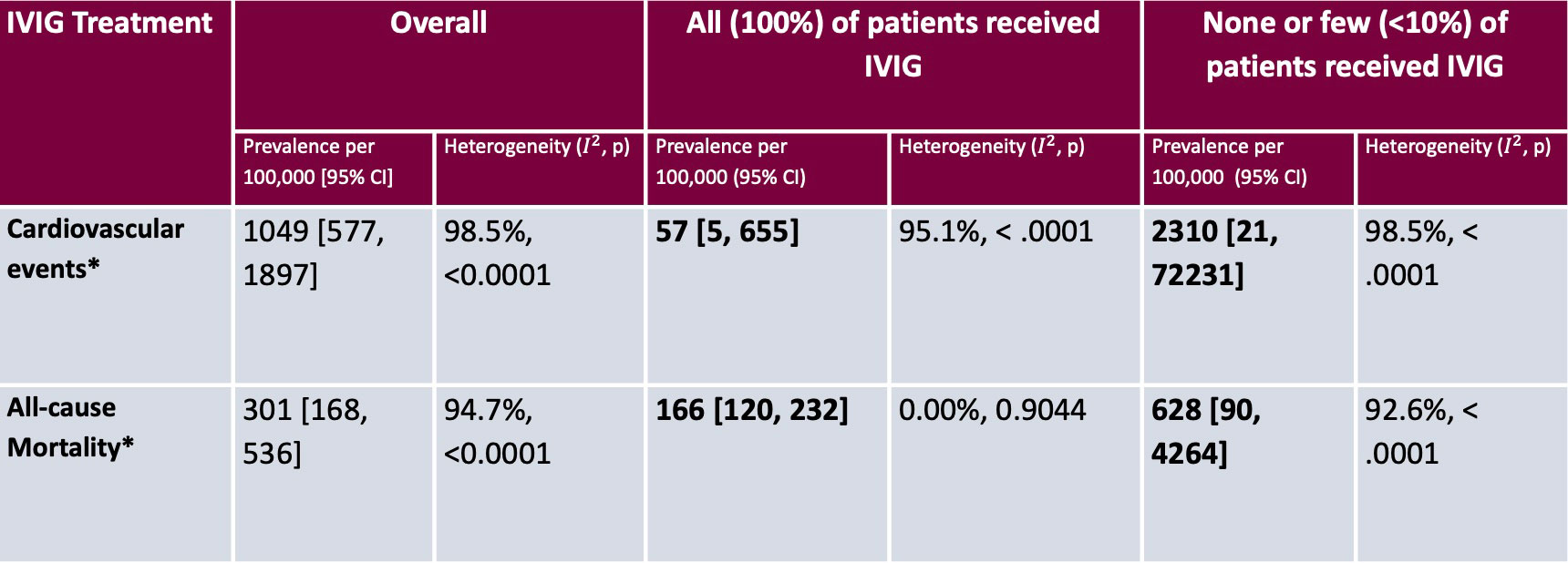Session Information
Date: Sunday, November 13, 2022
Title: Vasculitis – Non-ANCA-Associated and Related Disorders Poster II
Session Type: Poster Session C
Session Time: 1:00PM-3:00PM
Background/Purpose: Kawasaki Disease (KD) is a common childhood vasculitis. Coronary artery aneurysms (CAAs) develop in approximately 25% of untreated KD patients. However, there is limited data on the long-term rate cardiovascular events following childhood KD diagnosis, especially in the post-IVIG era. We aimed to determine the prevalence of myocardial infarction (MI), heart failure (HF), and cardiac arrest, referred to as composite cardiovascular events (CV) and mortality following KD diagnosis.
Methods: We performed a literature search using 5 databases until 2019. We retrieved English articles for review including randomized-controlled trials, cross-sectional studies, case-control studies, cohort studies, and abstracts. Inclusion criteria included patients 0-18 years at KD diagnosis with a minimum follow-up >1 year. The search produced 170 full-text articles for data extraction (Figure 1) of the incidence of CV events (MI, HF and cardiac arrest) and mortality. The Newcastle-Ottawa Scale assessed study quality focusing on participant selection, comparability, and measurement of outcome or ascertainment of exposure. The study was submitted to PROSPERO on 23 November 2019 and registered on 28 April 2020. Subgroup analysis for CAA presence and IVIG use was performed.
Results: Among 113,903 KD patients across 170 studies, there were 1521 and 1140 cases of CV events (MI, heart failure, or cardiac arrest) and death, respectively. Eighty-four studies followed patients for ³ 5 years. Meta-analyses generated a prevalence of CV events of 1.05% and death of 0.30%. Among studies where all participants had CAAs, the prevalence was 3794 and 1133 per 100,000 for CV events and death, respectively. For studies where none or few of the participants had CAAs (< 10% of participants), the prevalence was 33 and 134 per 100,000 for CV events and death, respectively (Table 1). Among studies where all participants received IVIG, the prevalence was 57 and 166 per 100,000 for CV events and death, respectively. For studies where none or few of the participants received IVIG, the prevalence was 2310 and 628 per 100,000 for cardiovascular events and death, respectively (Table 2).
Conclusion: This study comprises the largest systematic review and meta-analysis of long-term cardiovascular outcomes and mortality following KD diagnosis. The low prevalence of mortality (< 1%) and lower prevalence of CV events for patients without CAAs can provide reassurance to families over the long-term. Those with CAAs, however, have higher prevalence of cardiovascular events which highlights the need for CAA surveillance, monitoring, and potential intervention to prevent development of these events.
To cite this abstract in AMA style:
Lao F, Robinson C, Schlorff M, Ewusie J, BEATTIE K, Batthish M. Long-term Cardiovascular Disease and Mortality Following Kawasaki Disease in Childhood: A Systematic Review and Meta-analysis [abstract]. Arthritis Rheumatol. 2022; 74 (suppl 9). https://acrabstracts.org/abstract/long-term-cardiovascular-disease-and-mortality-following-kawasaki-disease-in-childhood-a-systematic-review-and-meta-analysis/. Accessed .« Back to ACR Convergence 2022
ACR Meeting Abstracts - https://acrabstracts.org/abstract/long-term-cardiovascular-disease-and-mortality-following-kawasaki-disease-in-childhood-a-systematic-review-and-meta-analysis/



